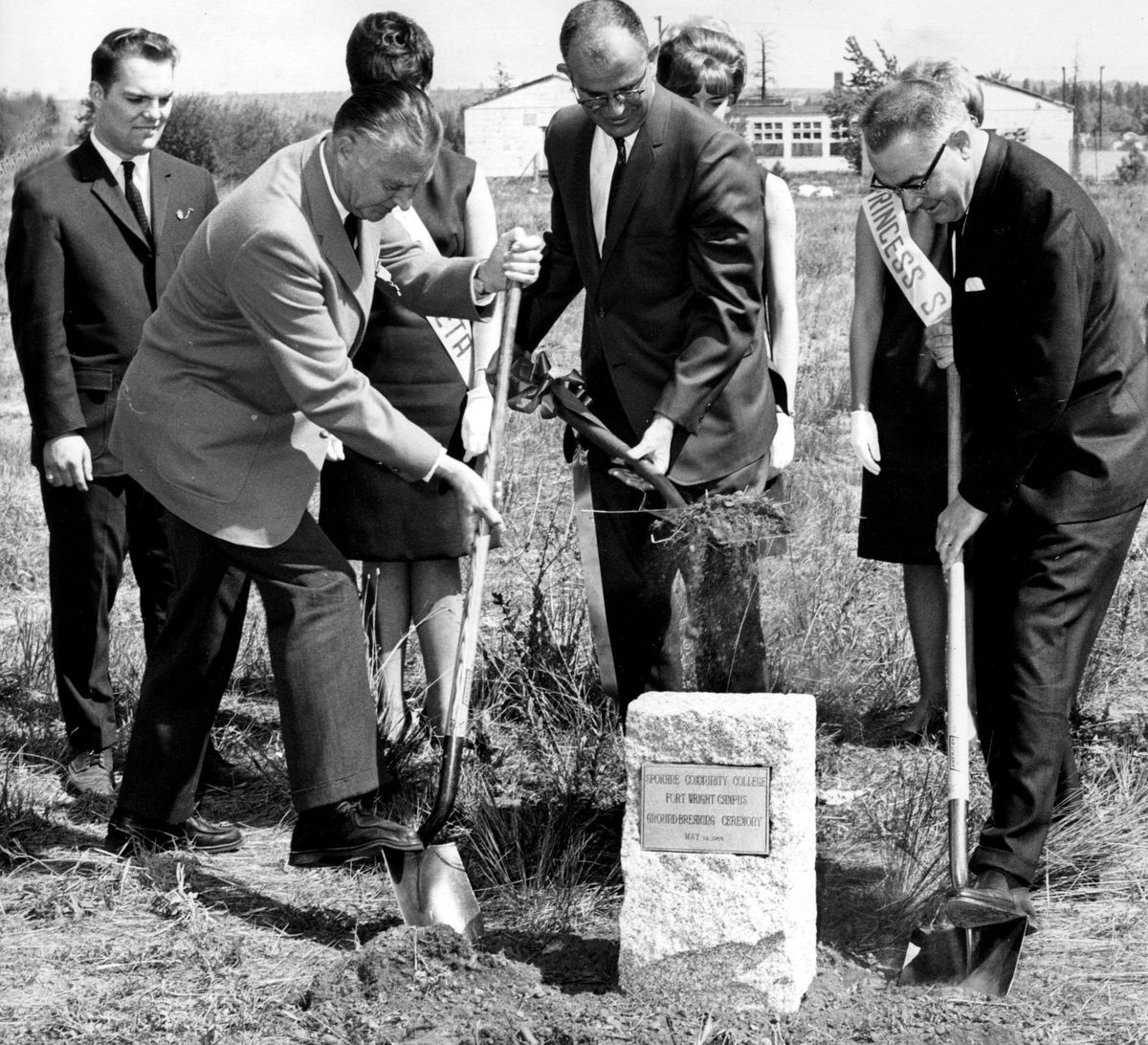This column reflects the opinion of the writer. Learn about the differences between a news story and an opinion column.
Shawn Vestal: 50 years later, CCS thriving in Spokane

Fifty years ago, Jane Johnson’s mother heard the news that there would be a new kind of school starting in Spokane.
The community college would take over vocational-technical training from the local school district and add academic programs that would allow students to transfer to four-year schools. As common and essential as this approach seems now, it was brand-new – and not universally welcome – at the time.
And Johnson’s mother saw an opportunity that was not strictly educational. She saw a chance to get her daughter – who had grown up in the Northwest, earned a graduate degree at UCLA and moved to Arizona – to return to Spokane.
“She went in and introduced herself to Dr. Johnson,” Johnson said, referring to Walter Johnson, SCC’s first president and no relation.
“She said, ‘You need to know my daughter.’ ”
Before long, Walter Johnson not only knew her daughter, he had hired her as one of the first academic instructors at Spokane Community College. The college was approved by the state 50 years ago this month and held its first classes in September 1963. With the baby boomers booming, interest in education – and particularly in affordable and accessible options – was high.
“To me, it was just absolutely the most wonderful higher education opportunity to be involved with,” said Jane Johnson, who taught speech and other subjects before moving into administration. “I had bosses who were so open to change and doing new things that I loved my job. I absolutely loved what I was doing.”
Spokane seemed to appreciate it, too. Around 1,200 students enrolled that first fall for classes at the single large building at Mission Avenue and Greene Street, which had been the home of vo-tech programs through the school district since 1957. About 900 of those students were enrolled in vo-tech programs, with the rest in academic classes, according to an SCC history. Tuition for a 15-credit load was $37.50.
By the second year, enrollment doubled and talk of a second campus began. Voters passed a construction bond, and Spokane Falls Community College opened in 1967. Within a decade, enrollment in both colleges, including extension programs, approached 30,000 with around a third of those at SCC. Today, the Community Colleges of Spokane – which includes SCC, SFCC, the Institute for Extended Learning, and affiliated programs throughout Eastern Washington – serves more than 38,000 students.
Community colleges are now an ingrained part of the educational system, providing workforce training and basic education for potential transfer students. They are engines of opportunity, giving people a cheaper way to return to school, to retrain themselves professionally, or to prepare for a university. President Barack Obama often cites the colleges, in partnership with business, as critical for recovery efforts; he initiated a $500 million grant program last fall intended to create more job-training partnerships at community colleges.
When Jeff Overholser hears talk like that, it makes him feel prescient. Overholser was the director of admissions at SCC in the early days, back when the value of the community college approach was in some dispute, and he said he was an evangelist for the system from the start.
He remembers giving a speech once, where he said, “ ‘You’re going to see the day when the community college system is going to be one of the main stems of the system,’ ” he said. “People thought I was crazy.”
The community college approach – as opposed to “junior colleges,” which had more of a liberal arts, transfer-student focus – was taking root across the country in the 1960s. In many communities like Spokane, vo-tech training had been done by local school districts; some of them were reluctant to give up the programs and the money that came with them. On the other end, some colleges and universities were not exactly welcoming; they had concerns about the academic rigor of the new institutions and weren’t eager to accept their credits, Overholser said.
But he said he was impressed with the quality of instruction right off the bat. Over the years, the student-centered approach of the community college became one of its greatest strengths, he said.
“My argument was, really, at the four-year schools … the freshmen never see a regular faculty member. All they see is a” teaching assistant, he said.
Overholser, 87, spent 24 years in the system, retiring in 1988 as a district vice president. Johnson had a similarly long career with SCC. She moved from teaching into public relations; along the way she had a hand in developing many of the things that helped give the college permanence and legitimacy, from the foundation to a slick college magazine. Her communications skills were such that when Spokane needed a PR expert for Expo ’74, Johnson got the job – leaving her college position for two years to work with King Cole and travel the country in preparation.
But she was eager to return to SCC, she said. Earlier this week, she recalled wrestling with the decision to return to Spokane and join this fledgling enterprise – which would require uprooting her family and going to work in an academic endeavor that had its share of detractors.
A half-century later, she’s proud of what CCS has accomplished and glad she made the decision she did.
“I like challenge,” she said. “I’ve always been sort of entertained by being able to create change.”
